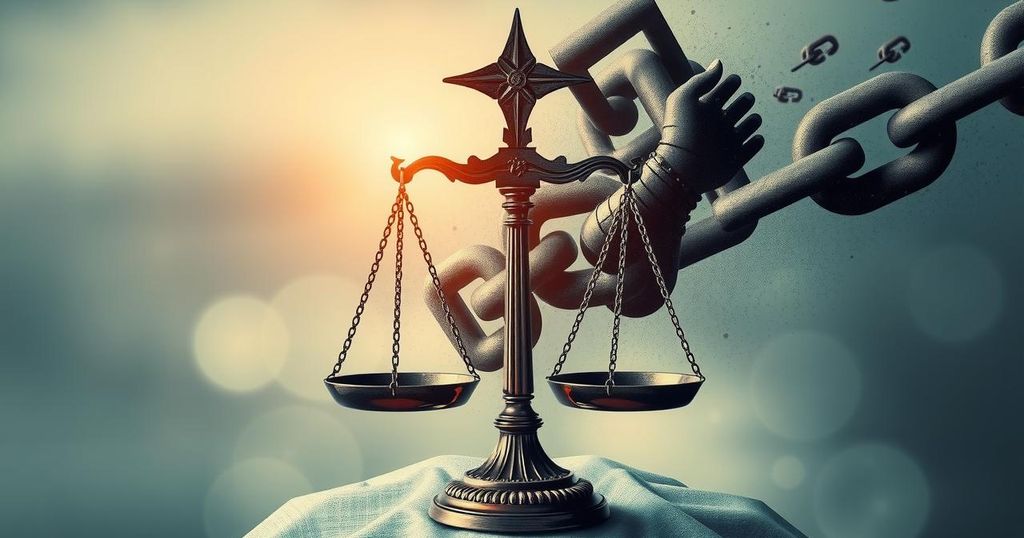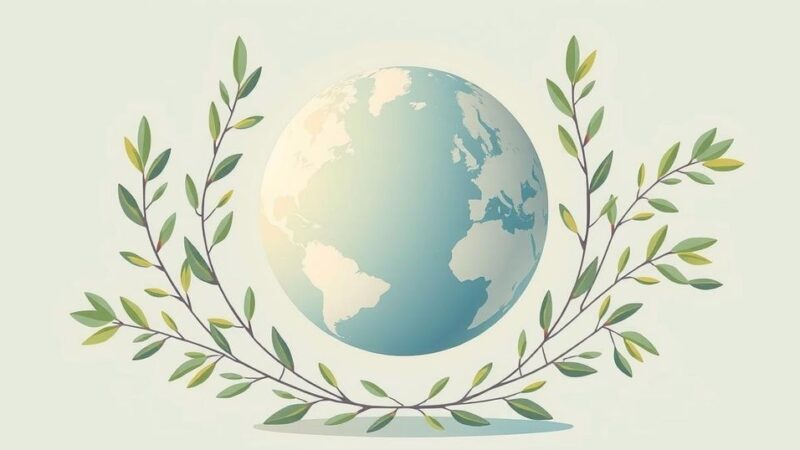Morocco’s opposition is urging King Mohammed VI to pardon Mohamed Ziane, a former Human Rights Minister serving a politically motivated five-year prison term linked to corruption charges. This situation reflects broader concerns about human rights and dissent in Morocco, as Ziane’s legal battles are viewed as a means to silence criticism. The call for action underscores the struggle for civil liberties, particularly for political prisoners and movements demanding justice.
Morocco’s opposition parties are intensifying their calls for King Mohammed VI to grant a royal pardon to Mohamed Ziane, an 81-year-old former Human Rights Minister imprisoned for five years. Ziane’s conviction, deemed politically motivated by rights groups, stems from corruption and embezzlement charges linked to the 2015 election campaign and has drawn criticism from the Justice and Development Party (PJD), an Islamist opposition group. They highlighted humanitarian concerns in their appeal to the monarch.
Ziane, a veteran lawyer and founder of the Moroccan Liberal Party (PML), is regarded by his supporters as a victim of political retribution due to his advocacy for journalists and political activists. His legal troubles began with a three-year sentence in 2022 for numerous allegations, including defamation and insulting public officials. Rights organizations have characterized his trials as unfair, stating they aim to suppress dissent and tarnish his reputation.
Having served as Minister of Human Rights from 1995 to 1996, Ziane has been a vocal critic of the Moroccan government’s policies. A Human Rights Watch report in 2022 identified him as a target in Morocco’s crackdown on dissent, especially regarding the state’s treatment of civil rights issues. Opposition parties have consistently sought royal pardons for Ziane and others imprisoned for political expressions, particularly those involved in the Hirak Rif protests advocating for justice in the Rif region.
Following the Hirak movement protests, many activists, including its leader Nasser Zefzafi, were sentenced to lengthy prison terms on charges of undermining public order. Calls for Ziane’s release have emerged frequently, including an unsuccessful amnesty proposal by the Moroccan Socialist Party. King Mohammed VI retains the sole authority to issue pardons, which he traditionally uses during significant national occasions.
In the past, the King has pardoned various imprisoned critics, including journalists, marking his 25th-year reign. The upcoming opportunity for pardons is anticipated during the Eid celebrations following Ramadan. However, seeking a royal pardon involves a formal application process, perceived by some human rights advocates as an additional humiliation that individuals must endure.
Activists argue that these proceedings signify a broader issue of suppressing dissent in Morocco, emphasizing that “dissent has a price.” Last year, more than ten activists involved in pro-Palestine demonstrations also faced legal repercussions for challenging the government’s normalization with Israel. This ongoing plight of outspoken individuals highlights the current restrictions on fundamental freedoms in Morocco.
The case of Mohamed Ziane has become emblematic of the broader struggle for human rights and freedom of expression in Morocco. His imprisonment has been criticized by various human rights organizations as politically motivated, steering attention to how dissent is treated within the kingdom. Ziane’s contributions to defending civil liberties, particularly for journalists and political dissidents, have drawn sharp backlash from the state, indicating a troubling precedent for political dialogue in Morocco.
The community’s persistent efforts to secure a pardon for Mohamed Ziane emphasize the underlying tensions between political dissent and governmental authority in Morocco. As discussions surrounding his case continue, the opposition’s sustained advocacy signals broader demands for human rights reforms. The complexities of seeking royal pardons illustrate the challenges faced by political prisoners and activists in expressing their rights within Morocco’s political landscape.
Original Source: www.newarab.com






